The Song of the Whale Team; some conservation stories and successes
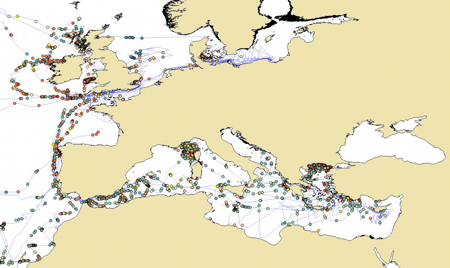
The Song of the Whale project was started in 1987 by the International Fund for Animal Welfare (IFAW) to develop and promote the use of non-invasive (benign) techniques to study whales without harming them, in order to counter ‘scientific’ whaling. In the past 20 years, the team has become a leader in the field of non-invasive whale research, developing and disseminating techniques and undertaking practical projects to find solutions to reduce threats to marine wildlife. Focusing on whales and dolphins, but also other marine wildlife and habitats, the team has effectively combined research, outreach and collaboration to conduct research projects in data deficient areas, and to inform poorly understood problems. In 2009 long term team members set up Marine Conservation Research to continue and further develop the Song of the Whale project. Our conservation success stories include:
Supporting responsible whale watching as an alternative to whaling
Developing new research techniques to address conservation problems
Providing crucial support for Marine Protected Areas
Studying threatened areas, habitats and species for the first time to highlight those most at risk
Measuring underwater noise and working to reduce its impacts on marine life
Supporting responsible whale watching as an alternative to whaling
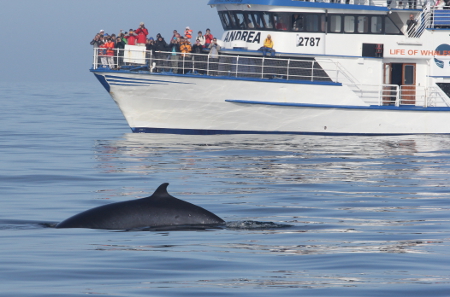
• The islands of the Azores: traditional whaling for sperm whales continued here into the 1980s. In the late 1980’s, IFAW and the Song of the Whale team collaborated with local conservationists and academics to promote the concept of whale watching as an alternative to whaling, encouraging the involvement of ex-whalers (as vigias, or look outs) in the developing industry, and documenting the presence and range of cetaceans in the region. The Azores is now one of the world’s best-known and well regulated whale watching destinations and the team’s role in the early studies of cetaceans of the Azores and development of responsible ecotourism there is widely recognised.
• The team has since worked to support the development of ‘appropriate’, properly regulated, whale watching operations in the British Isles (Scotland), Iceland and the Caribbean, including conducting research on the impacts of whale watching, and how best to minimise disturbance. Back to top ^^
Developing new research techniques to address conservation problems
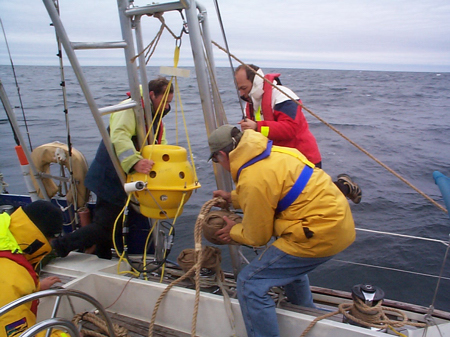
• The team has pioneered the development of acoustic and tracking research techniques for difficult to study and little known species, including sperm whales, porpoises, beaked whales and basking sharks, and demonstrated their application in areas that are remote, little studied or under threat.
• The team worked in the Bay of Fundy and Gulf of Maine off North America for many seasons recording and describing the calls of the highly endangered North Atlantic right whale. Based on this ground breaking work, and in association with widespread outreach and policy efforts with the shipping industry, detection systems designed by scientists from the team in collaboration with partners formed the basis for a network of automatic acoustic detector buoys along the eastern coast of the USA to provide an early warning system to ships of the presence of North Atlantic right whales, and thus reduce ship strikes. Back to top ^^
Providing crucial support for Marine Protected Areas
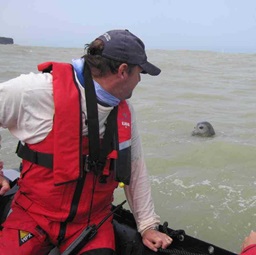
• The SOTW team has conducted baseline research in support of the designation of marine sanctuaries and protected areas for cetaceans in Ireland and the Mediterranean Sea.
• The team has worked with regional NGOs to conduct and support habitat surveys for critically endangered Mediterranean monk seals off the coasts of Turkey and West Africa.
Studying threatened areas, habitats and species for the first time to highlight those most at risk
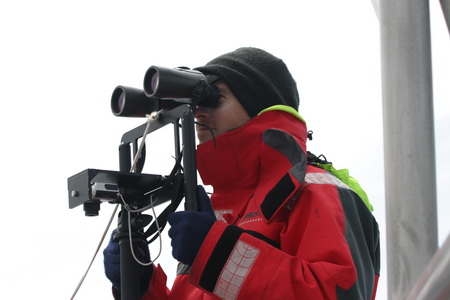
• The team has conducted the first systematic vessel surveys in several regions: little studied parts of the Mediterranean Sea for sperm whales; the western coast of Africa, parts of the Baltic Sea, the English Channel and the Northern Aegean Sea for harbour porpoises; the Rockall Trough and mid-Atlantic for beaked whales; and between North America, Iceland and Greenland for the highly endangered right whale population in the north Atlantic.
• The team were the first to document living harbour porpoises in the Aegean Sea for 20 years; worked to assess the breeding habitat and range of the critically endangered Mediterranean monk seal in Turkey and northwest Africa, developed a photo-identification catalogues for sperm whales and basking sharks, and documented one of only a handful of sightings ever of Shepherd’s beaked whales off southern Australia.
• The team have positioned a deep-water acoustic recorder off Cape Verde for an 18 month deployment in order to document the seasonal presence of the North Atlantic’s most endangered breeding population of humpback whales. Back to top ^^
Measuring underwater noise and working to reduce its impacts on marine life
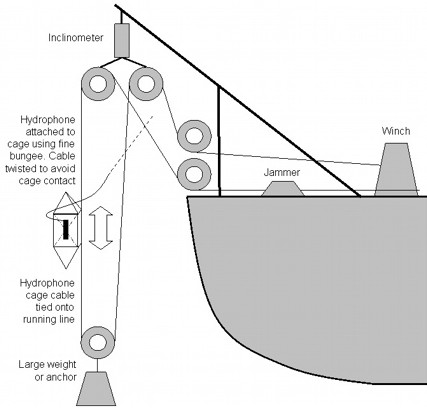
• Ocean and shipping noise have been measured around the UK, in the Mediterranean Sea, off Iceland and Australia to inform measures to reduce vessel noise through international forums and policy efforts.
• Studies of whale and dolphin presence and distribution in the face of offshore oil and gas developments have been undertaken in Trinidad, Ireland and Australia. Back to top ^^
Inspiring conservation and the use of non-invasive techniques through ground-breaking collaborations with world-wide partners
• Over 200 interns and visiting scientists have participated in our training scheme working alongside the team on board; many previous Song of the Whale interns are now engaged in conducting conservation-focused research on endangered species, working in research positions at Universities, for NGOs and other conservation organisations as well as being scientific and policy advisors to governments around the world.
• Data have been provided for Masters and PhD projects, visiting scientists and Governments, ocean wide databases (OBIS seamap, JCP), photo-identification catalogues. These collaborations initiate and inform conservation and policy changes around the world, including for example on bycatch in the Baltic and North Seas, ship strikes and entanglements in the USA and Canada, marine protected areas, whale watching guidelines and regulatory measures to reduce disturbance from underwater noise and other human activities.
• And it is not just the data that have informed conservation for marine wildlife. The techniques and equipment developed by the team are in use around the world by scientists studying large whales in the Antarctic, in surveys for highly endangered vaquita in Mexico, in porpoise studies in Canada, Europe, the Far East and the US and in surveys for sperm whales off the US, Mexico and elsewhere. In summer 2005, IFAW and SOTW team’s harbour porpoise survey techniques and data logging systems were used by the European-wide SCANS-II survey for small cetaceans of the North Sea and adjacent waters. Back to top ^^